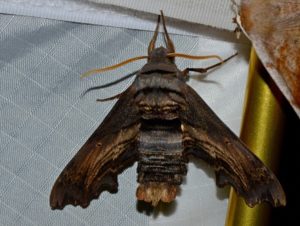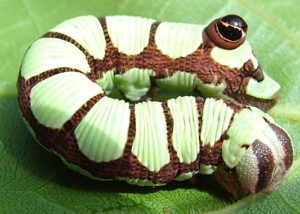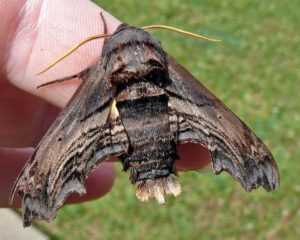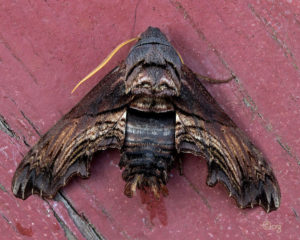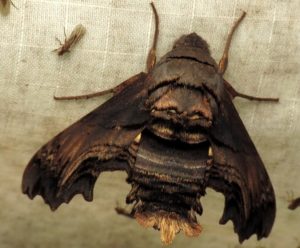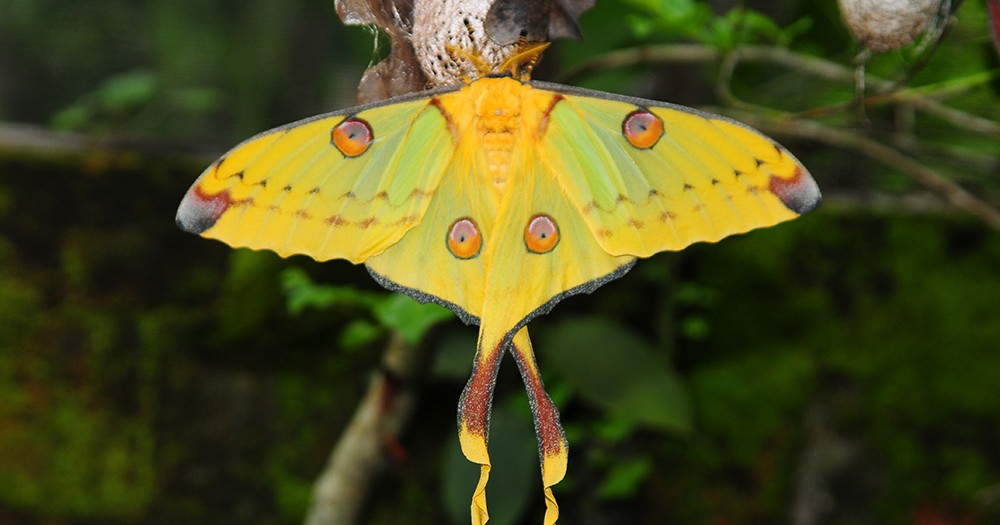Abbott’s Sphinx Moth (Sphecodina abbottii)
The Abbott’s Sphinx Moth is a member of the hawk moth family. It is a giant moth capable of fitting in the palm of an adult human’s hand. English entomologist William John Swainson first described it in 1821.
M.espacepourlavie.ca
Scientific Classification
- Family: Sphingidae
- Genus: Sphecodina
- Scientific Name: Sphecodina abbottii
Description and Identification
Caterpillar
They start green and fleshy, with a long horn at the posterior end. As the larva matures, their color becomes brown. The horn evolves into a button-like knob closely resembling an eyespot.
In fact, in the final instar, the larva has two patterns, one in brown bands with about ten big green spots on their back mimicking grapes. The second type is wholly brown marked with a wood grain-like pattern. In both the color variations, one common thing is the big eyespot near the abdominal tip.
Pupa
When fully mature, the larva overwinters in the burrows underground and starts pupating.
Adult Moth
Sexual Dimorphism: Present but not prominent.
Color and Appearance
Forewing: When opened, the upper part of the wings is dark brown or violet gray, and the underside is marked irregularly. When the wings are closed, the patterns remain consistent.
Hindwing: When opened, the yellow margin of the upper side is visible close to the abdomen if the wings are spread wide enough. It becomes less prominent when the wings are closed.
Average wingspan: 51 – 70 mm
Flight pattern: Consistent
Season: May- June
Egg
Females lay eggs close to the host plant.
Quick Facts
| Distribution | Eastern North America |
| Habitat | Open woody areas |
| Lifespan of Adults | Not recorded |
| Host Plants | Grapes, peppervines, and Virginia creepers |
| Adult Diet | Nectar from flowers of plants like honeysuckle, viburnum, and lilac. |
Did You Know
- They mimic bumblebees, both in appearance and by making a buzzing sound while flying and even when feeding.
- When resting, they raise their abdomen, closely resembling a broken branch, thus helping them camouflage well with their surroundings
Scientific Classification
- Family: Sphingidae
- Genus: Sphecodina
- Scientific Name: Sphecodina abbottii

